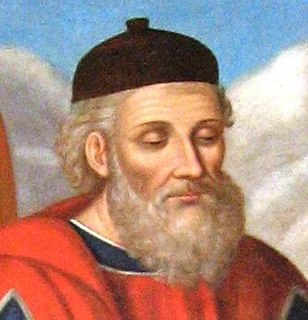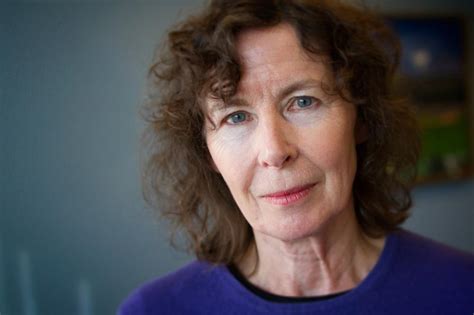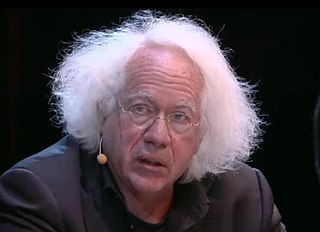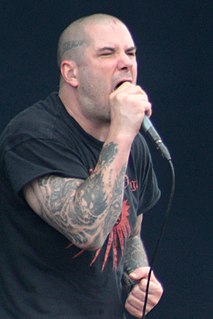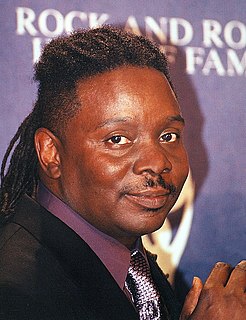Top 340 Philip Morris Quotes & Sayings - Page 6
Explore popular Philip Morris quotes.
Last updated on April 15, 2025.
When it comes to his sons, it would be easy to think that the macho Duke of Edinburgh has most in common with Prince Andrew. After all, it was Andrew, his third-born son, who risked his life in the Falklands war as a Royal Navy helicopter pilot - just as Philip had risked his own as a naval officer during World War II.
Philip Galanes makes his debut with a novel that is both heartbreaking and deftly comic, the story of a young man struggling with his most primitive desires--wanting and needing. It is a novel about the complex relationships between parents and children, a story of loss and of our unrelenting need for acknowledgment, to be seen as who we are. And in the end it is simply a love story for our time.
Philip Glass, like [Virginia] Woolf, is more interested in that which continues than he is in that which begins, climaxes, and ends... Glass and Woolf have both broken out of the traditional realm of the story, whether literary or musical, in favor of something more meditative, less neatly delineated, and more true to life. For me, Glass [finds] in three repeated notes something of [a] rapture of sameness.
It's absolutely fantastic. When I was a kid, my father was always trying to tell me how to be a man, and he said to me, I was maybe 9, and he said to me, 'Philip, whenever you take a nap, take your clothes off, put a blanket on you, and you're going to sleep better.' Well, as with everything, he was right. ... Then the best part of it is that when you wake up, for the first 15 seconds, you have no idea where you are. You're just alive. That's all you know. And it's bliss, it's absolute bliss.
In France those absurd perversions of the art of war which covered themselves under the name of chivalry were more omnipotent than in any other country of Europe. The strength of the armies of Philip and John of Valois was composed of a fiery and undisciplined aristocracy which imagined itself to be the most efficient military force in the world, but which was in reality little removed from an armed mob.
Why had we let it go? Why had we both been condemned...to an exile among dreary strangers who had made us give up all desire for rest, for friendship, for the sound of human voices? Could I now reclaim a single hour spent talking to my brother, Philip, and give it to Ken Daggart? Who made it our duty to accept, as the only reward for our work, the gray torture of pretending love for those who roused nothing but contempt?
She put a hit on her boyfriend, so it's not like she hasn't murdered someone." "And you know that how?" Sam asks. I'm trying really hard to be honest, but telling the whole thing to Sam seems beyond me. Still, the fragments sound ridiculous on their own. "She said so. In the park." He rolls his eyes. "Because the two of you were so friendly." "I guess she mistook me for someone else." I sound so much like Philip that it scares me. I can hear the menace in my tone. "Who?" Sam asks, not flinching. I force my voice back to normal. "Uh, the person who killed him.
Misgovernment is of four kinds, often in combination. They are: 1) tyranny or oppression, of which history provides so many well-known examples that they do not need citing; 2) excessive ambition, such as Athens' attempted conquest of Sicily in the Peloponnesian War, Philip II's of England via the Armada, Germany's twice-attempted rule of Europe by a self-conceived master race, Japan's bid for an empire of Asia; 3) incompetence or decadence, as in the case of the late Roman empire, the last Romanovs and the last imperial dynasty of China; and finally 4) folly or perversity.
The last publicized center of American writing was Manhattan. Its writers became known as the New York Intellectuals. With important connections to publishing, and universities, with access to the major book reviews, they were able to pose as the vanguard of American culture when they were so obsessed with the two Joes--McCarthy and Stalin--that they were to produce only two artists, Saul Bellow and Philip Roth, who left town.
Different influences at different times in my career, and some have stayed with me more, some less. Chester Himes. Ralph Dennis, who wrote a series called Hardman which is a big influence on the Hap and Leonard novels. Harlan Ellison, Philip Jose Farmer, Gerald Kersh, Fredrick Brown, Robert Bloch, and I'm just getting started. I read constantly. As for the epic Western, that's Paradise Sky.
He (King Philip) wanted as many Greeks as possible to take part in the festivities in honour of the gods, and so planned brilliant musical contests and lavish banquets for his friends and guests. Out of all Greece he summoned his personal guest-friends and ordered the members of his court to bring along as many as they could of their acquaintances from abroad.
I bear to the wisdom of Sir Philip Sidney, who said that next to hunting he liked hawking worst. However, though he may have fallen into as hyperbolical an extreme, yet who can put too great a scorn upon their folly, that, to bring home a rascal deer, or a few rotten conies, submit their lives to the will or passion of such as may take them under a penalty no less slight than there is discretion shown in exposing them.
I genuinely was just such a fan of the books. When I heard that this was on the cards, I've got to do this; I've got to get involved with this. I'm such a Philip Pullman fan and actually his philosophies, morals and the way he looks at the world. He does what he does brilliantly as a writer. He writes children's stories with major adult themes and major ideas about making the right choices.
In The Moon, Come to Earth Philip Graham takes us on the best kind of journey, as he simultaneously reveals the fascinating city of Lisbon--its neighborhoods, its writers, its customs, its cuisine--and offers an intimate portrait of his beloved family. With his far-reaching intellect Graham is the ideal travelling companion, and The Moon, Come to Earth is a beautiful and surprising book.
The Romans never allowed a trouble spot to remain simply to avoid going to war over it, because they knew that wars don't just go away, they are only postponed to someone else's advantage. Therefore, they made war with Philip and Antiochus in Greece, in order not to have to fight them in Italy... They never went by that saying which you constantly hear from the wiseacres of our day, that time heals all things. They trusted rather their own character and prudence- knowing perfectly well that time contains the seeds of all things, good as well as bad.
Philip Kitcher has composed the most formidable defense of the secular view of life since Dewey. Unlike almost all of contemporary atheism, Life After Faith is utterly devoid of cartoons and caricatures of religion. It is, instead, a sober and soulful book, an exemplary practice of philosophical reflection. Scrupulous in its argument, elegant in its style, humane in its spirit, it is animated by a stirring aspiration to wisdom. Even as I quarrel with it I admire it.
Do not suppose that abuses are eliminated by destroying the object which is abused. Men can go wrong with wine and women. Shall we then prohibit and abolish women? The sun, the moon, and the stars have been worshiped. Shall we then pluck them out of the sky? ...see how much he [God] has been able to accomplish through me, though I did no more than pray and preach. The Word did it all. Had I wished I might have started a conflagration at Worms. But while I sat still and drank beer with Philip and Amsdorf, God dealt the papacy a mighty blow.
Let all your preaching be in the most simple and plainest manner; look not to the prince, but to the plain, simple, gross, unlearned people, of which cloth the prince also himself is made. If I, in my preaching, should have regard to Philip Melancthon and other learned doctors, then should I do but little good. I preach in the simplest manner to the unskillful, and that giveth content to all. Hebrew, Greek and Latin I spare until we learned ones come together.
Let me tell you about the nap. It's absolutely fantastic. When I was a kid, my father was always trying to tell me how to be a man. And he said - I was maybe nine - he said, 'Philip, whenever you take a nap, take your clothes off and put a blanket over you, and you're going to sleep better.' Well, as with everything, he was right.
Down is an incredibly important band to me. And there's one other project that may be a little tough for people to understand - it's not sonically heavy, but subject-wise it's absolutely heavy. It's a band that I've been in for many, many yearsm and I've just been waiting for the right itme, and boy, it sure is the right time. So, yeah, you will hear music from Philip Anselmo again, and it ain't gonna be nothing nice.
Philip Larkin didn't write for several years before his life ended. And when he was asked why he didn't write, he said the muse deserted him. And when I read that, it really had a profound effect upon me, sort of scared me. So that's why I think I have no right to assume that some thought is going to come... But I think, in my imagination, if it is it, there will probably be something else I'm interested in.
All talks about legacies of white supremacy must be tied to empowering the lives of poor and working people as a whole. The black agenda - from Frederick Douglas to A. Philip Randolph, Martin Luther King Jr, Fannie Lou Hammer to Ella Baker - has always been tied to race talk inseparable from expanding possibilities of democracy, expanding empowerment of everyday people.
According to, for example, one academic by the name of Philip Harvey, whose expertise is basically how do we create a New Deal, today. According to his estimate, these jobs could be created for far less than the [Barack] Obama stimulus package, which cost, you know, $700 or $800 billion, something like that, and produced around 3 million jobs - not a lot. According to his estimates, it would cost less to produce two-thirds of 20 million.
A Concordance of Leaves is an epic poem of the indomitable yet fragile human spirit. Philip Metres brings Palestine and Palestinians into English with rare luminosity. One feels echoes of Oppen's succinct tenderness in the depiction of the numerous characters of this work. Without other, there is no self. And that other is the stranger who must be loved. Concordance is, after all, a wedding poem-leaves and pages in search of a certain passage toward harmony.
I started moving away from poets like Wallace Stevens and Hart Crane and started reading poets like, again, Karl Shapiro, Howard Nemerov, Philip Larkin, and the British poets who were imported through that important anthology put together by Alvarez - and those would include Thom Gunn and Ted Hughes. And I think these poets gave me assurance that there were other ways to write besides the rather involuted style of high modernism whose high priests were Pound, Eliot and Stevens, and Crane perhaps.
You can't blame anyone else... You have to make your own choices and live every agonizing day with the consequences of those choices. He knew this. That's why he deserted us like we deserted those civilians. He saw the road ahead, a steep, treacherous mountain road. We'd all have to hike that road, each of us dragging the boulder of what we'd done behind us. He couldn't do it. He couldn't shoulder the weight." - Philip Adler
You know that scene at the beginning (of 'Pirate Radio') where I take The Count a cup of tea in the studio, and he shakes my hand, gives me a hug, and slaps me on the arse? That's genuinely the first time Tom Sturridge met Philip Seymour Hoffman. Literally, I'd hadn't seen him or exchanged words with him before. Richard just called me on set and said, 'Take him a cup of tea.' So that's what I did. And the smile of delight as he slaps me on the arse is purely mine.
The seeds of Illumination's origin sprang from an idea lead singer Philip Bailey had of collaborating with new generation of soul artists for his next solo album. The idea of illumination is vibrant and positive. Earth Wind Fire collaborating with the new soul movement made sense because the thrust of their music is still about playing instruments and utilizing vintage sounds, only in today's setting.
A man who is furnished with arguments from the mint, will convince his antagonist much sooner than one who draws them from reason and philosophy. - Gold is a wonderful clearer of the understanding; it dissipates every doubt and scruple in an instant; accommodates itself to the meanest capacities; silences the loud and clamorous, and cringes over the most obstinate and inflexible. - Philip of Macedon was a man of most invincible reason this way. He refuted by it all the wisdom of Athens; confounded their statesmen; struck their orators dumb; and at length argued them out of all their liberties.
In short, I will preach it [the Word], teach it, write it, but I will constrain no man by force, for faith must come freely without compulsion. Take myself as an example. I opposed indulgences and all the papists, but never with force. I simply taught, preached, and wrote God's Word; otherwise I did nothing. And while I slept, or drank Wittenberg beer with my friends Philip and Amsdorf, the Word so greatly weakened the papacy that no prince or emperor ever inflicted such losses upon it. I did nothing; the Word did everything.
I never did know exactly what was meant by the term "The Beats," but let's say that the original meeting, association, comradeship of Allen Ginsberg, myself, Michael McClure, Lawrence Ferlinghetti, Philip Whalen, who's not here, Lew Welch, who's dead, Gregory Corso, for me, to a somewhat lesser extent (I never knew Gregory as well as the others) did embody a criticism and a vision which we shared in various ways, and then went our own ways for many years.
I was less angry at [Carl] Armstrong, though I was angry at the people who came to his trial: Dan Ellsberg, who ordinarily I respected a lot; Philip Berrigan; the guy who teaches at Princeton still - I can't remember his name. And they were saying - well, they were saying, really, what Arthur Koestler had people saying on "Darkness at Noon." The means were unfortunate and, sadly, someone died, but the end is what is important and this was a great symbolic - something or other - sign against the war in Vietnam.
Or if the hypothesis were offered us of a world in which Messrs. Fourier's and Bellamy's and Morris's Utopias should all be outdone, and millions kept permanently happy on the one simple condition that a certain lost soul on the far-off edge of things should lead a life of lonely torment, what except a specifical and independent sort of emotion can it be which would make us immediately feel, even though an impulse arose within us to clutch at the happiness so offered, how hideous a thing would be its enjoyment when deliberately accepted as the fruit of such a bargain?
Creation is thus God's presence in creatures. The Greek Orthodox theologian Philip Sherrard has written that "Creation is nothing less than the manifestation of God's hidden Being." This means that we and all other creatures live by a sanctity that is inexpressibly intimate, for to every creature, the gift of life is a portion of the breath and spirit of God. (pg. 308, Christianity and the Survival of Creation)
From time to time I have wished to do more work in philosophy of religion, but the demands and challenges have been such that it needed more work than I had time for. I sneaked a chapter into my book on loyalty that touched on some issues in the area. Maybe in the future I will try responding to Philip Kitcher's excellent critique: Life After Faith: The Case for Secular Humanism - it gets closer to me than much of what is produced in the field.
I had brief glimpses of emotional catharsis while writing. I remember reading something Philip Roth wrote about how he writes every single day, but it's almost as if he has amnesia every morning - he has almost zero confidence that anything will come but he just sits down and plugs away. And at the end of the day it feels like a miracle: "How did I do that?" I had a similar experience where it was just about putting in the hours and being present.
Roth Unbound is filled with intelligent readings and smart judgments. Because of the author's sympathy and sharp mind, it offers real insight into the creative process itself, and into Philip Roth's high calling as a great American artist. The book is, in some ways, a radical rereading of Roth's life and his work. It is impossible, by the end, not to feel a tender admiration for Roth as a novelist and indeed for Claudia Roth Pierpont as an empathetic and brilliant critic.
I want to write about people I love, and put them into a fictional world spun out of my own mind, not the world we actually have, because the world we actually have does not meet my standards. Okay, so I should revise my standards; I'm out of step. I should yield to reality. I have never yielded to reality. That's what SF is all about. If you wish to yield to reality, go read Philip Roth; read the New York literary establishment mainstream bestselling writers
Philip Galanes has fashioned a novel both bleak and funny about a young man's struggle to sort out his troubled love: the too-strong love for his mother, the too-weak love for his suicidal father, and the all-consuming love of anonymous sexual encounters. Pointed and acute, this story tells of the narrator's many betrayals of others and their many betrayals of him. It exists in an uncomfortable moral space where the humor of terrible things sometimes outweighs, but never obscures, their poignancy.
Philip wasn't the sort of man to make a friend of a woman. He wanted devotion. I gave him that. I did, you know. But I couldn't stand being made a fool of. I couldn;t stand being put on probation, like an office-boy, to see if I was good enough to be condescended to. I quite thought he was honest when he said he didn't believe in marriage -- and then it turned out that it was a test, to see whether my devotion was abject enough. Well, it wasn't. I didn't like having matrimony offered as a bad-conduct prize.










